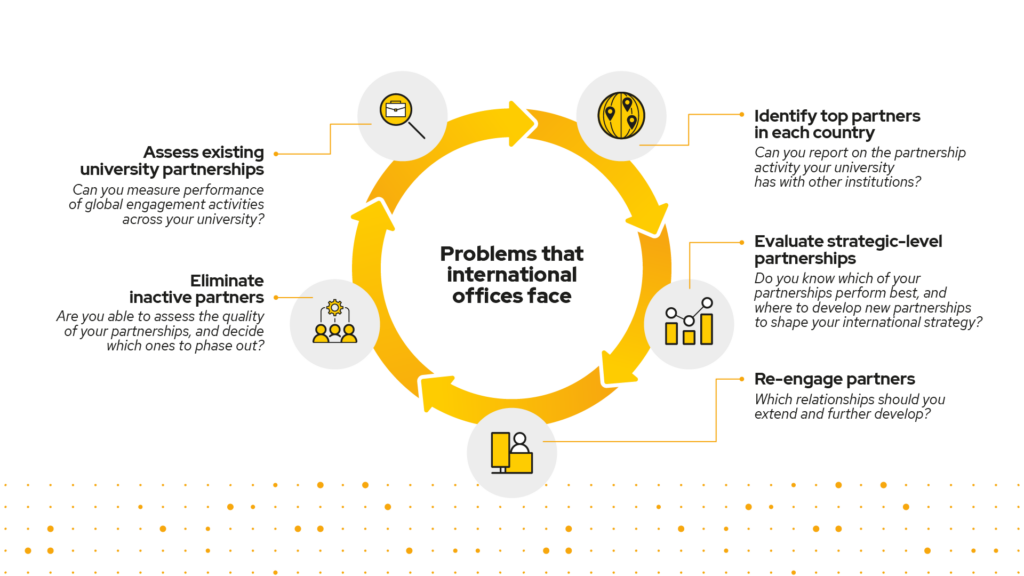
International offices are busy places. They deal with academics focused on teaching and research, IT departments, governance when it comes to reporting, they’re at the forefront of striking partnerships with other institutions across the world, and then they go on to manage these partnerships. These all happen regardless of internationalisation objectives – which may add on additional responsibilities beyond these.
Of course, the outcomes of all this work are positive for students and institutions. A successful global engagement strategy:
- Delivers international mobility opportunities for faculty and students
- Creates partnerships with likeminded institutions for research and transnational education
- Enhances your institution’s reputation
It’s not easy though – these busy offices deal with complex work, and problems can arise because of that. As detailed in a QS webinar titled, “Global engagement strategies for a shifting higher education landscape”, which you can watch here, there are some issues that arise across international offices, regardless of an institution’s location or prestige. They’re not unsolvable, according to QS experts.
A cycle of challenges
During the webinar, Olivier Tane, Head of Services & Support at QS detailed a common set of problems, that all lead into one another. We caught up with him to go into a bit more detail.
“International offices face these challenges whether they operate by themselves, or work as part of a broader network in the institution, such as the student recruitment office.”

The solution to so many of these issues is reliable data – a challenge in itself in universities, where departments and business units may act as individual organisations. According to Olivier, “Keeping track of data, the format of it, and who owns it can all be issues when you’re trying to analyse the impact your partnerships have on your institution’s reputation.
“Data and feedback collection is essential for higher education institutions to make the right choice. The way you create partnerships, follow their growth, and assess their positive impact, should all be measured with data, rather than anecdotal evidence.
“However, we know that, at a high level, decision makers often have incomplete data at their disposal. According to Fivetran, over 80% of companies rely on stale data for decision-making.
“Having a data collection process that can collate information from different stakeholders and departments, ensuring they’re harmonised in one single format is critical to effective decision making.
“It’s why our clients find QS MoveON so useful. We can help you customise the data entry form to align to your workflow and institutional goals, removing disparate and confusing datasets. MoveON then acts as a central source of global partnership data.”
Partnership assessment
“In the past, having a large number of partners in a variety of territories across the globe was considered a measure of a successful partnership strategy. Institutions who work with us have started to tell us there is a shift happening from quantity to quality – which brings the question of how you measure the quality of your existing partnerships.
For us, it’s key to define metrics to identify high impact partners – these may not all be relevant to you, and there may be other measures you deem important. Years of collaboration; the impact the partnership has on your research, general impact, diversity in the classroom; and attracting more international faculty can all be useful metrics.
Again, using MoveON and tracking your partnerships effectively, you can monitor your key metrics to ensure it’s working for you.
For more information on how MoveON can help improve your institutional performance, contact us.



